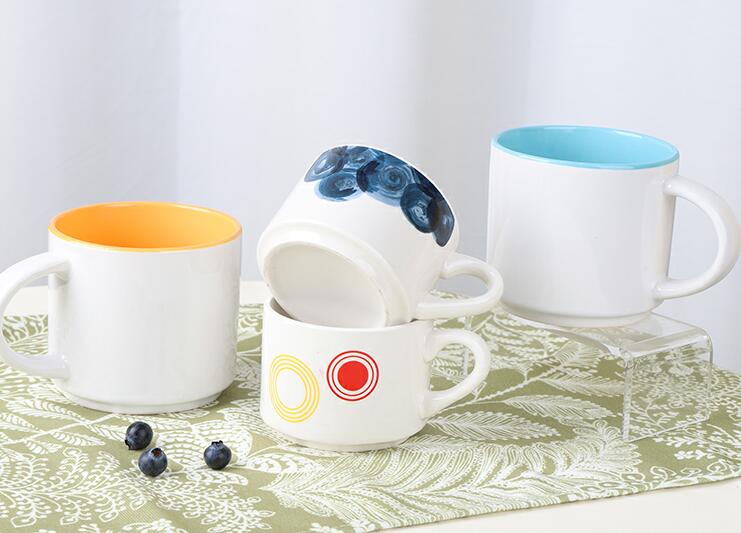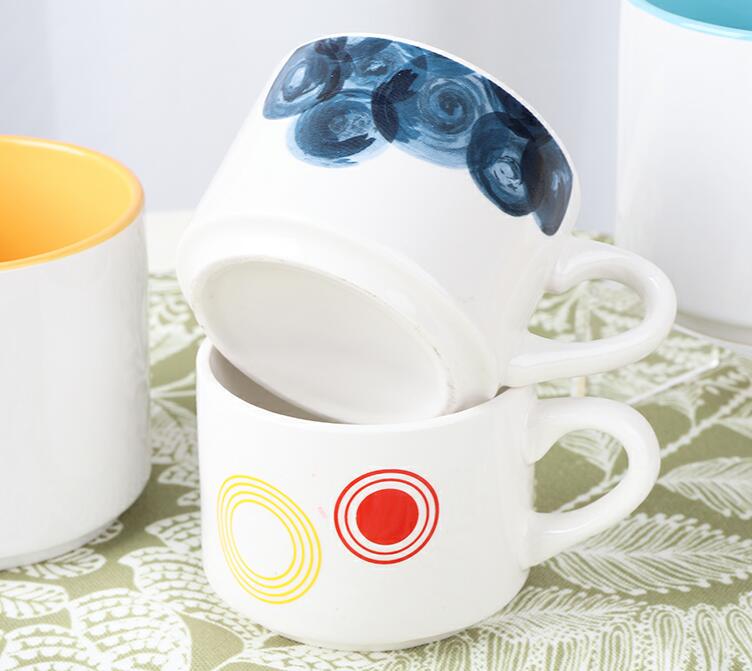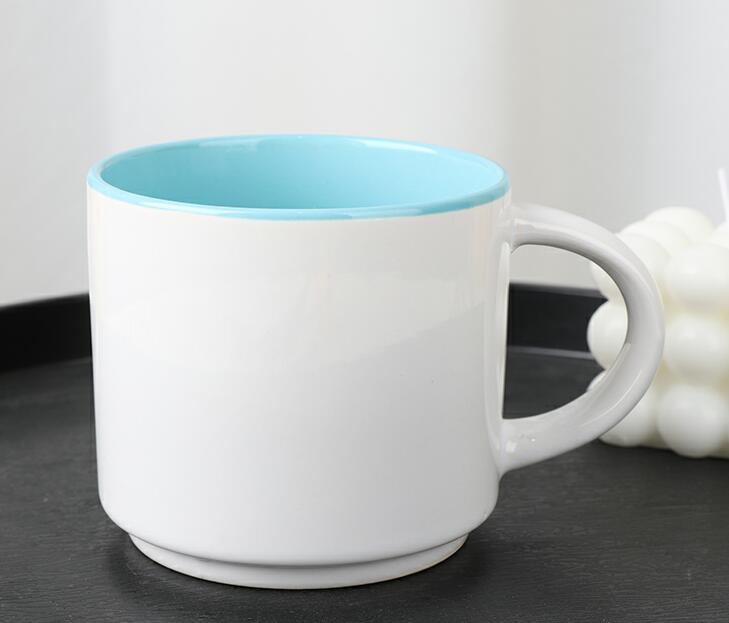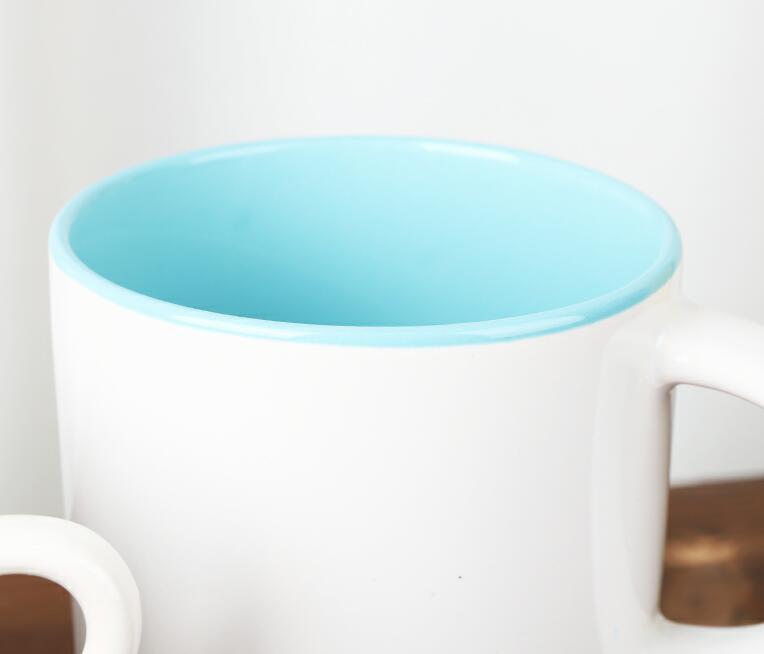Pulished on Jan. 17, 2025
When it comes to selecting the right cup for your daily beverages, factors like style, durability, and safety should be considered. Two of the most popular materials for drink
ware are ceramic and glass, but they differ significantly in terms of shatter resistance. Ceramic cups are known for their strength, while glass cups can often be delicate and
prone to breaking. In this article, we will explore and compare the shatter resistance of ceramic and glass cups to help you make an informed choice when selecting the ideal cup for your needs.

1. Material Properties and Durability:
Ceramic Cups:
Ceramic cups are typically made from clay, minerals, and water, which are fired in a kiln at high temperatures to create a strong, durable material. The firing process gives ceramics
their inherent toughness, making them resistant to minor impacts and scratches. While they are less prone to breaking from small drops or bumps, ceramic cups can still chip or
crack if dropped from a significant height or subjected to extreme force. The thicker the ceramic walls, the more durable the cup tends to be.
Glass Cups:
Glass, on the other hand, is a brittle material that tends to shatter upon impact. While it is aesthetically pleasing and commonly used for drink ware, glass cups are generally much
more fragile than ceramic cups. Even though glass can be made thicker and treated to be more durable (e.g., tempered glass), it is still far more susceptible to breakage from drops,
knocks, or sudden temperature changes.
2. Impact Resistance:
Ceramic Cups:
Ceramic cups are less likely to break when dropped or knocked, especially when they are made with thicker walls. The material can absorb small impacts, dispersing the force over
a larger surface area. However, if a ceramic cup made in China is dropped from a height onto a hard surface, it may crack or chip, but it is less likely to shatter completely into pieces. The risk of
a dangerous explosion of fragments is lower compared to glass cups.
Glass Cups:
Glass cups, especially thin-walled or non-tempered ones, are far more prone to shattering when subjected to impact. Even a slight knock or drop onto a hard surface can cause
glass to crack or explode into shards. While some high-quality glassware is reinforced to provide better impact resistance, glass remains more vulnerable to breaking upon impact
compared to ceramics.

3. Temperature Resistance and Thermal Shock:
Ceramic Cups:
Ceramic cups generally handle thermal shock better than glass cups. Thermal shock occurs when a material is exposed to rapid temperature changes, such as pouring boiling
water into a cold cup. While ceramic cups can crack under extreme thermal stress, they are less likely to break entirely, as they have a more consistent ability to distribute heat
across their surface. Ceramic cups are also less prone to cracking when exposed to hot or cold liquids, provided the temperature difference is not too extreme.
Glass Cups:
Glass cups, especially those made of regular soda-lime glass, are much more vulnerable to thermal shock. When exposed to sudden temperature changes—such as pouring hot
liquid into a cold glass—glass can crack or shatter instantly. Some glass cups are made from tempered or borosilicate glass, which is more resistant to thermal shock and less
likely to break under temperature stress, but even these options have their limits.
4. Resistance to Everyday Wear and Tear:
Ceramic Cups:
Ceramic cups manufacture in China resistant to scratches and minor wear, which helps maintain their structural integrity. However, over time, especially if dropped or knocked frequently, ceramics can
chip or develop cracks. These chips can compromise the integrity of the cup, making it more likely to break under further stress. Despite this, ceramic cups, on the whole, are more
resilient and less prone to complete breakage than glass cups in everyday use.
Glass Cups:
Glass cups, due to their brittle nature, are more prone to scratches and cracks from everyday wear and tear. Even small impacts, such as bumping against a hard surface or placing
the cup on a rough surface, can lead to cracks or chips. These imperfections weaken the glass, making it more susceptible to breaking. Because glass shatters rather than just cracking,
it poses more safety risks in terms of dangerous shards.

5. Shatterproof and Reinforced Glass Options:
While traditional glass cups are prone to shattering, some modern glassware is designed to be more resistant to breakage. Tempered glass, which is treated with a special process to
make it stronger, is one example. This type of glass is more resistant to impacts and thermal shock, and when it does break, it tends to shatter into small, rounded pieces rather than
sharp shards. Borosilicate glass, often used in laboratory equipment, is also more resistant to thermal shock and breakage. However, even reinforced glassware is still not as tough as
ceramic in terms of overall shatter resistance.
When comparing the shatter resistance of ceramic cups and glass cups, ceramic cups come out on top in terms of overall durability. Ceramic is less likely to shatter upon impact, making
it a safer and more practical choice for everyday use. Ceramic cups also handle temperature changes better and are more resistant to the kind of thermal shock that can cause glass to crack.

Glass cups, while elegant and stylish, are more fragile and prone to breaking or shattering, especially if not made with tempered or borosilicate glass. However, if you prefer the sleek, modern
look of glass, you may want to invest in reinforced glass options that provide some extra protection against breakage.
Ultimately, if shatter resistance is a key factor in your choice of drink ware, ceramic cups wholesale in China factory offer superior performance in terms of safety and durability, especially in a household with children or
in high-traffic areas. For those who enjoy the beauty and transparency of glass, tempered or borosilicate glass cups are the best options for increased durability.